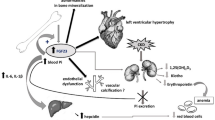Abstract.
Thyroid hormones control growth, development, differentiation and metabolism in vertebrates. Most of the actions of the active thyroid hormone T3 (3,5,3′-triiodo-l-thyronine) are exerted via ligand-activated nuclear T3 receptors. Activation of the secretory product of the thyroid gland, l-thyroxine (3,3′,5,5′-tetraiodo-l-thyronine), or T4, is catalyzed by two enzymes, iodothyronine-5′-deiodinases type I and type II. Inactivation of T4 and T3 occurs via type III iodothyronine-5-deiodinase and to some extent by type I 5′-deiodinase. Complementary DNAs (cDNAs) encoding the substrate-binding selenocysteine-containing subunits of the deiodinases were cloned, though some controversy still exists on the type II 5′-deiodinase subunits. Characterization of tissue-specific expression patterns indicates that these selenium-dependent enzymes exert tight control on local and systemic availability of active T3. Thus, deiodinases are envisaged as guardians to the gate of thyroid hormone action mediated by T3 receptors.
Similar content being viewed by others
Author information
Authors and Affiliations
Rights and permissions
About this article
Cite this article
Köhrle, J. The deiodinase family: selenoenzymes regulating thyroid hormone availability and action . CMLS, Cell. Mol. Life Sci. 57, 1853–1863 (2000). https://doi.org/10.1007/PL00000667
Issue Date:
DOI: https://doi.org/10.1007/PL00000667



